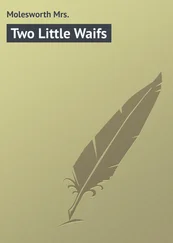Mrs. Molesworth - Philippa
Здесь есть возможность читать онлайн «Mrs. Molesworth - Philippa» — ознакомительный отрывок электронной книги совершенно бесплатно, а после прочтения отрывка купить полную версию. В некоторых случаях можно слушать аудио, скачать через торрент в формате fb2 и присутствует краткое содержание. Жанр: foreign_prose, foreign_children, на английском языке. Описание произведения, (предисловие) а так же отзывы посетителей доступны на портале библиотеки ЛибКат.
- Название:Philippa
- Автор:
- Жанр:
- Год:неизвестен
- ISBN:нет данных
- Рейтинг книги:3 / 5. Голосов: 1
-
Избранное:Добавить в избранное
- Отзывы:
-
Ваша оценка:
- 60
- 1
- 2
- 3
- 4
- 5
Philippa: краткое содержание, описание и аннотация
Предлагаем к чтению аннотацию, описание, краткое содержание или предисловие (зависит от того, что написал сам автор книги «Philippa»). Если вы не нашли необходимую информацию о книге — напишите в комментариях, мы постараемся отыскать её.
Philippa — читать онлайн ознакомительный отрывок
Ниже представлен текст книги, разбитый по страницам. Система сохранения места последней прочитанной страницы, позволяет с удобством читать онлайн бесплатно книгу «Philippa», без необходимости каждый раз заново искать на чём Вы остановились. Поставьте закладку, и сможете в любой момент перейти на страницу, на которой закончили чтение.
Интервал:
Закладка:
But want of courage was by no means a characteristic of the girl, and with the practical good sense which contrasted curiously with the dash of recklessness in her temperament, she now told herself that, after all, there was no real ground for these mental tremors.
“I am actually mistress of the situation,” she thought. “It does depend upon myself, and I am not afraid of breaking down once I am really started, for I have plenty of imagination. Rather too much, in some ways – if we had been arriving on a bright summer afternoon, with the sun shining and no feeling of mystery and gloom, I should have been quite in high spirits. After all, considering everything, I daresay it is safer for me to be rather depressed.”
Very grave she was, very grave, indeed, as she stood behind Mrs Headfort in the hall a moment or two later. She was intensely eager to judge of the nature of Evelyn’s reception by her new relatives, but for the present she had small opportunity for observing anything. No member of the family was visible – only an irreproachable, grey-haired butler was informing her sister that the ladies were in the drawing-room, ere he turned to show her the way thither, and Evelyn, as she followed him, glanced back for an instant with a half-piteous, half-humorous expression which made Philippa feel as if she must either laugh or cry – which, she could not have decided.
To neither inclination, of course, did she yield; she did not even speak, as, in her turn, she followed a younger man-servant who civilly offered to show her the way to the housekeeper’s room, a new question presenting itself to her mind at the words. What sort of person would the housekeeper turn out to be? A great deal might hang upon this – everything almost, in fact; and as the vision of some housekeepers she had seen, stout and self-satisfied, innately vulgar in their very civility and obsequiousness to their superiors, rose before her mind’s eye, again it came home to Miss Raynsworth that she had been far from realising what she was undertaking.
A door in the somewhat dimly-lighted passage was thrown open, and as the footman stood aside to let her pass in, a pleasant, gentle voice met her ears.
“Good-evening,” it said, quietly; “you must have had rather a cold journey. You have just arrived with Mrs Marmaduke Headfort, have you not? Take a seat by the fire,” and as Philippa murmured her thanks and glanced round her at the neat, comfortable little room, Mrs Shepton, for such was her name, went on with increasing kindliness of tone, as she saw that the girl seemed young, and suspected that she was timid. – “It is long past tea-time, of course, but I have ordered a little for you. I thought you would be glad of it.”
“I shall be very glad of it, indeed,” said Philippa, looking up gratefully, and speaking in the slow, careful way she had determined to adopt, and in the housekeeper’s face she read nothing to modify the first instinct of confidence and satisfaction drawn forth by the tone of her voice.
Mrs Shepton was an elderly woman, with a pleasant though somewhat careworn face. She had “known trouble” in her time, and many details of her sad, though by no means uncommon little history were confided to Philippa’s sympathising ears before her stay at Wyverston came to an end. And with some natures sorrow elevates as well as softens; though not in any conventional sense superior to her class, the good housekeeper was one whom no true woman, of whatever position, need have hesitated to call a friend. And Philippa’s instincts were quick and keen.
“She is nice, and good, and kind,” she decided at once. “It will make the greatest possible difference to me to have to do with such a woman. I feel as if she were a superior sort of Dorcas.”
The sweet expression on the girl’s face went straight to Mrs Shepton’s heart.
“There’s nothing like a cup of tea to refresh one after travelling,” she said in her homely way – there were occasions on which the housekeeper could be correctly dignified and “stand-off” even to the most superior of ladies’ maids – but just now her one thought was to set this shy young creature at her ease. “You have come from Mrs Marmaduke’s home, I suppose?” she went on, as she handed the tea to Philippa. “I don’t remember rightly where it is, but it’s at several hours’ distance from here, I know.”
“It is in – shire, close to Marlby,” Philippa replied. “We left the house about eleven o’clock this morning.”
“Have you been long with your lady?” pursued Mrs Shepton. “You look so young. You couldn’t have been out in India with her, surely?”
“Oh, no, I was scarcely grown-up then. I have only just entered Mrs Headfort’s service, but,” she added, after an instant’s consideration, “she has known me a long time.”
Mrs Shepton nodded, approvingly.
“Been in the young lady’s Sunday-school class, I daresay,” she thought to herself, and aloud she added, though without any suggestion of inquisitiveness, “That is very nice; your mother must be pleased for you not to be with strangers, that is to say if – ” for the seriousness of the girl’s face, and her absolutely black attire, hinted at the possibility of her having recently lost some near relation.
Philippa understood the hesitation and answered at once, speaking more quickly and brightly than hitherto.
“Oh, yes, I have a mother, and father too!”
“I am glad to hear it,” rejoined Mrs Shepton, “but, by-the-by, my dear,” – the expression denoting that the new-comer had made a marvellously rapid stride in her good graces – “you’ve not yet told me your name!”
For the first time, strange to say, it struck Philippa that this – her surname, that is to say – was as yet an unknown quantity. She was fortunately not one of those people who change colour on small provocation.
“Mrs Headfort calls me Phillis,” she said, slowly.
The housekeeper looked rather surprised.
“Phillis,” she repeated; “that is a first name. I suppose it’s with her having known you so long; but it was your surname I meant. It wouldn’t do for the servants here to call you by your first name. Of course in a big house like this we have to be very particular.”
“Of course,” said Philippa, rather coldly. Then recollecting herself – “My last name,” she said, “is ‘Ray’ – ‘Phillis Ray,’” and she smiled slightly in spite of herself.
“Then ‘Miss Ray’ you must be to every one here but myself,” said Mrs Shepton. “There are not so many visitors among us just now as sometimes. There’s only Mrs Worthing’s maid – a very experienced person, much older than you; and Mr Gresham’s valet, Mr Furze, a quiet young man, and of course he’s so often here with his master that he’s scarcely like a stranger. But when we are by ourselves as just now, my dear, I should like to call you Phillis; I had a sister once of that name – long ago.”
“Yes, please do,” said Philippa, heartily. – “Mr Gresham, did you say,” she continued. “Is that a gentleman with a dog? I saw the name on some luggage at the station, which must have belonged to him. They travelled part of the way in our train – in the carriage I was in – second-class, but I didn’t see any valet.”
There was a touch of curiosity in her tone, which rather surprised and possibly disappointed the housekeeper.
“The Mr Gresham I alluded to,” she said, somewhat stiffly, “has been staying here some time. The young gentleman who came down to-day is Mr Michael, his cousin. You must excuse me, my dear, if I remind you not to speak of your lady as Mrs Headfort, but as Mrs Marmaduke,” she went on. “She is, of course, Mrs Headfort next to my lady, but still – ”
Читать дальшеИнтервал:
Закладка:
Похожие книги на «Philippa»
Представляем Вашему вниманию похожие книги на «Philippa» списком для выбора. Мы отобрали схожую по названию и смыслу литературу в надежде предоставить читателям больше вариантов отыскать новые, интересные, ещё непрочитанные произведения.
Обсуждение, отзывы о книге «Philippa» и просто собственные мнения читателей. Оставьте ваши комментарии, напишите, что Вы думаете о произведении, его смысле или главных героях. Укажите что конкретно понравилось, а что нет, и почему Вы так считаете.












